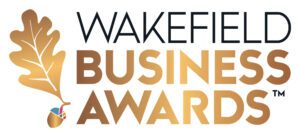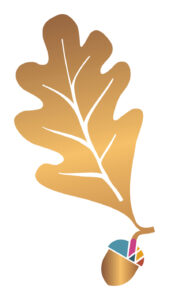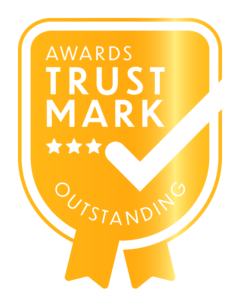HEADLINE SPONSOR:


Judging Criteria
Judging criteria and how to enter
We’ve made some changes to how to enter the awards for 2024 to make things even easier. You’ll answer five questions, in around 350 words, to help the judges understand your achievements.
The entry process
We know how busy businesses are, so we’ve made it really simple to enter.
You’ll need to answer five questions in no more than 350 words as your entry. We also ask for a 200-word summary which will be printed in the awards brochure if you’re a finalist. The summary also signposts the judges about what’s in your entry.
Simply complete the entry form online – you’ll need to do one per category you’re entering. Upload a logo (high quality png or jpeg version plaese) and a photo to accompany your entry.
Then pay the fee. It’s just £50+VAT per entry and you can do it simply and easily online with a card payment.
For company entries, the questions are:
- Tell us about your company strategy – who are your clients/customers, what are you selling them, and what did you set out to achieve this year? If you’re entering the collaboration award, tell us about the collaboration strategy. If you’re entering the Doing Good in Business award, you’ll need to tell us about your strategy for that. And if you’re hoping to win the Employer of the Year trophy, tell us about your strategy for being a great employer!
- Explain your goals and objectives – it’s much easier for the judges to award higher marks if you give them something that can actually be measured, so try to avoid “increase” or “decrease” and give them finite information on which to judge you. Relate this to your organisation, the collaboration, your objectives for employee engagement or your doing good
- How did you achieve the amazing things you’ve done? Tell us about the actual activity – was your activity based on research? Or different to anything you’ve done before? Bring to life what you’ve done to deliver fabulous results this year.
- What was creative or innovative about what you did? It might not be mind-blowing, but it might be something you haven’t tried before. Maybe you targeted a new market. Perhaps you ran a creative campaign. Help the judges to see what makes you stand out.
- What were the results? Compare these to the goals/objectives you’ve already told us about. We’re looking for impact here, so tell us, for example, “80% of our award entries have been shortlisted” rather than “we’ve written 150 award entries”. Again, giving measurable figures helps the judges to give you more points as your achievements are clearer and proven. All details are treated in the strictest confidence, of course.
You will also be asked to provide a 200 word general summary about the business/organisation. This will appear in the awards brochure which will be distributed at the event.
For individual entries such as Employee of the Year, the questions are:
- Tell us a little about the person you’re nominating and their role at your company. We’re happy to know they live on a canal boat or own a goat – help us visualise your amazing nominee!
- What were the goals set for your nominee this year? Give us measurable numbers to help us understand the scale of the task they were set.
- What have they achieved this year and how does that compare to the goals or objectives they were set? Ideally, you’d give us hard numbers in this section to demonstrate how fabulous your nominee is.
- Explain what’s been difficult for your nominee this year. What obstacles to success have they overcome?
- Why should your nominee win Employee or Apprentice of the Year? Give us your pitch about what makes them so amazing and why they deserve this award now.
You’ll also need to give us a short career history for your nominee – no more than 200 words. This will appear in the awards brochure which will be distributed at the event.
Judging criteria
The criteria for judging all the awards, except for the individual categories, are the same. They will score each question against this scoring guidance:
- Outstanding – robust evidence, a compelling description; 8-10 marks
- Good – very good story with some strong evidence; 6-7 marks
- Adequate – reasonable description of achievements and some evidence; 4-5 marks
- Limited – some weak areas, limited evidence available to support the story; 2-3 marks
- Weak – unconvincing, lacking evidence; 0-1 mark
There won’t be a second round of judging with presentations as we want to make the process as efficient as possible.
Entries close on 2nd August 2024 and we’ll announce the shortlist week commencing 9th September 2024.
Meet The Wakefield Business Awards Judges 2024
Head Judge – Louise Turner – Awards Writers/Wordsmiths
Mark Atkins – Sewtec Automation
Mark Lynam – Wakefield Council
Simon Banks – The Alternative Board
Rachel Smith – Clutter is the Enemy
Ali Carruthers-Illingworth – Purple Pebble People
Dave Kitson – DAK Training Ltd
Tracey Mearns – Good Fundraising Ltd
Lucy Ndlovu – Progressive Talent CIC
Anna Newport – Newport Land and Law
Sarah Shooter – Wakefield Theatre
John Stancliffe – Frickley Athletic Community Foundation
Munir Mamujee MBE – m2r Education
Narinder Gill – Inspiring Generations
Wendy Hunt – Tristar Cleaning Products UK Ltd
Jonathan Wensley – NEXTGEN EHS


